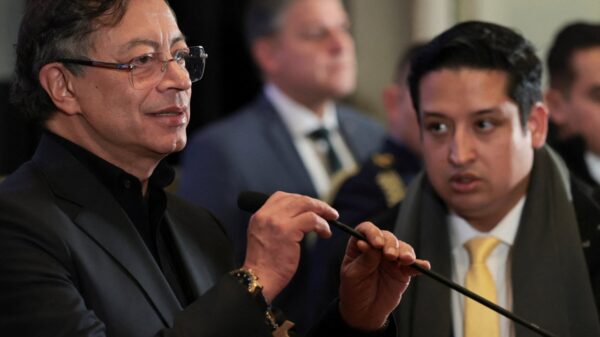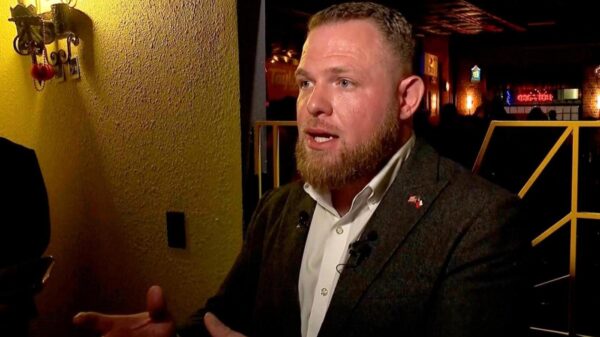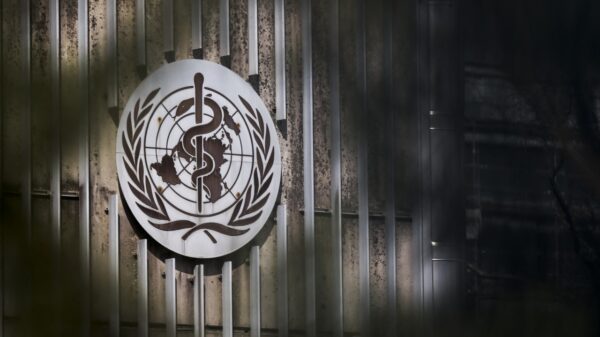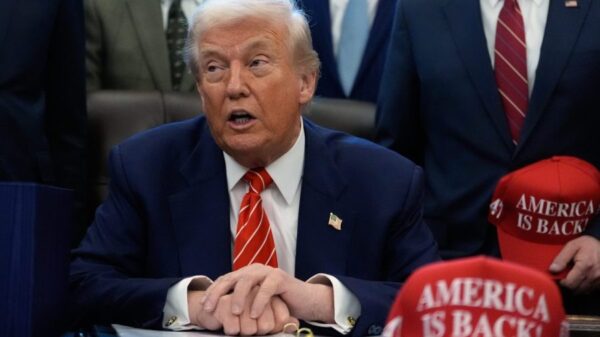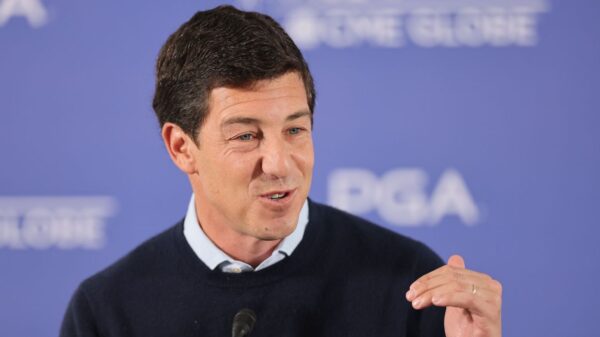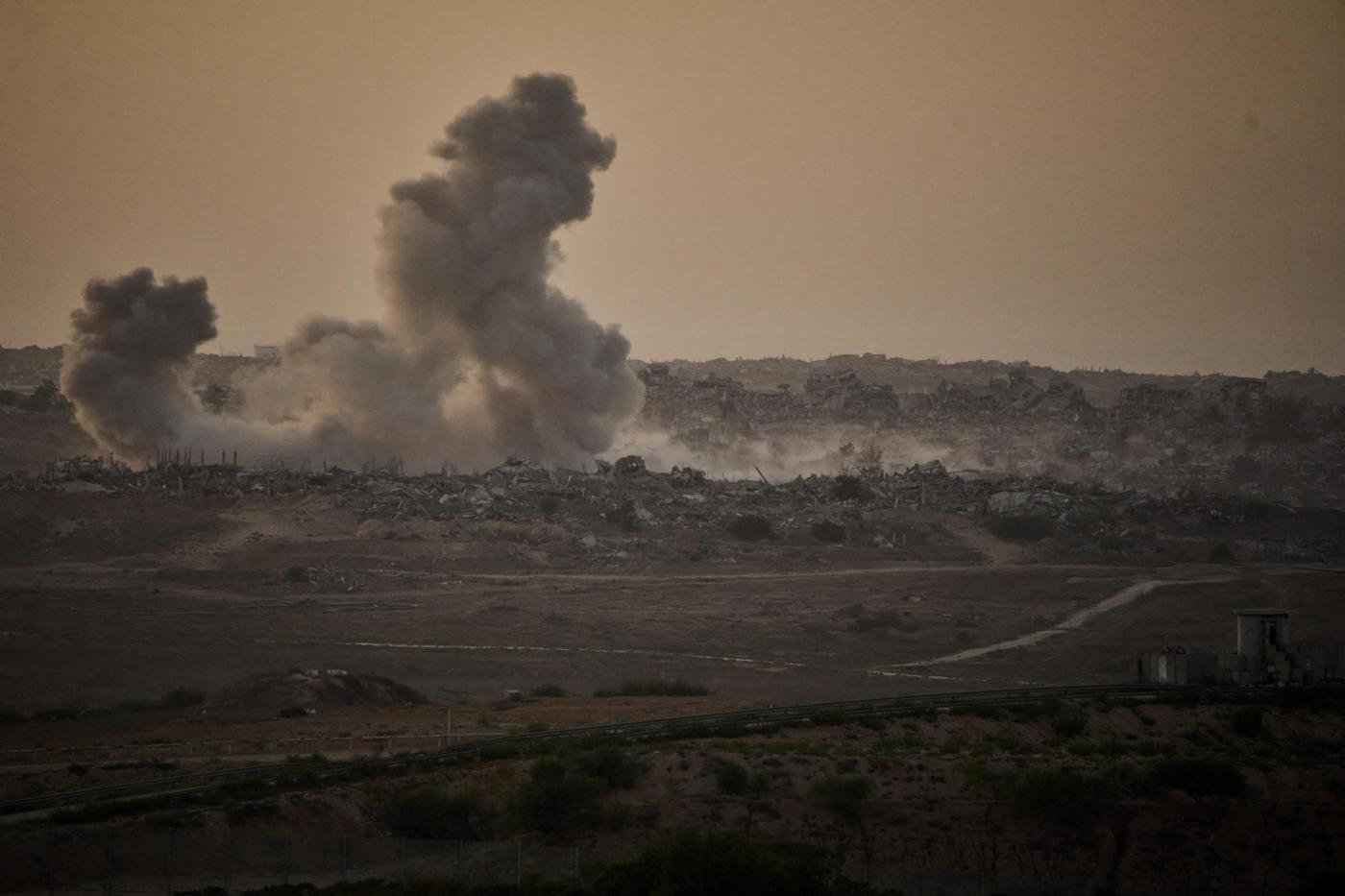UPDATE: The Israel Defense Forces (IDF) are ramping up preparations for the first phase of President Donald Trump’s plan aimed at ending the ongoing war in Gaza. This decision comes as Hamas has indicated acceptance of certain elements of the proposal, prompting Trump to call for an immediate halt to hostilities.
The IDF has been instructed by Israeli leaders to “advance readiness” for the plan’s implementation, with a focus on moving to a defensive-only posture in Gaza. An official, speaking on condition of anonymity, confirmed that no military forces have been withdrawn from the area. This pivotal announcement was made just hours after Trump highlighted Hamas’s willingness to engage in peace talks, stating, “I believe they are ready for a lasting PEACE.”
This urgent shift in strategy comes ahead of the second anniversary of the October 7, 2023, attack by Hamas, which ignited the current conflict. Trump is under pressure to fulfill his promises of bringing back hostages and achieving a ceasefire. Israeli Prime Minister Benjamin Netanyahu has also expressed commitment to ending the war, although he has not addressed the complexities of negotiating with Hamas.
Amid these developments, a senior Egyptian official reports that negotiations are underway for the release of not only hostages but also hundreds of Palestinian prisoners held by Israel. Arab mediators are preparing for comprehensive discussions aimed at unifying the Palestinian stance regarding Gaza’s future.
On Saturday, the Palestinian Islamic Jihad, a major militant group in Gaza, announced it accepted Hamas’s response to Trump’s plan, which had been previously rejected. However, significant questions linger regarding the details of the proposed agreement. Under the plan, Hamas is expected to release 48 hostages—approximately 20 of whom are believed to be alive—within three days and to disarm. In return, Israel would cease offensive operations, withdraw from significant territory, and allow humanitarian aid to flow into Gaza.
Despite the apparent momentum, skepticism remains about Hamas’s true intentions. Critics, including retired Israeli general Amir Avivi, warn that while Israel may pause military actions temporarily to facilitate hostage release, it will resume offensives if Hamas does not comply with disarmament. Observers caution that Hamas’s willingness to negotiate could be a façade, masking its unchanged demands.
The situation on the ground in Gaza is dire. As Israel continues its military operations in Gaza City, which has become a focal point of conflict, the humanitarian crisis deepens. An estimated 400,000 people have fled the city, but many remain, facing severe shortages of food and medical supplies. The territory is reportedly on the brink of famine, with the Gaza Health Ministry recently reporting a staggering death toll of over 67,000 Palestinians, a figure that includes a significant number of women and children.
Families of the hostages remain cautiously hopeful but deeply concerned. Yehuda Cohen, whose son Nimrod is among those held captive, expressed a mix of trust and anxiety regarding Trump’s involvement in the negotiations. “We’re putting our trust in Trump, because he’s the only one who’s doing it. … And we want to see him with us until the last step,” he said.
As the situation develops, the next steps remain unclear for those in Gaza grappling with the implications of these negotiations. Residents are calling for practical solutions and a tangible truce. “What we want is practical implementation. … We want a truce on the ground,” said local resident Samir Abdel-Hady, voicing fears that past talks may collapse once again.
With the international community closely monitoring the situation, all eyes are on the negotiations as they unfold. The urgency for a resolution is palpable, with countless lives hanging in the balance. As this story develops, updates will be crucial for those impacted by the ongoing conflict in Gaza.






